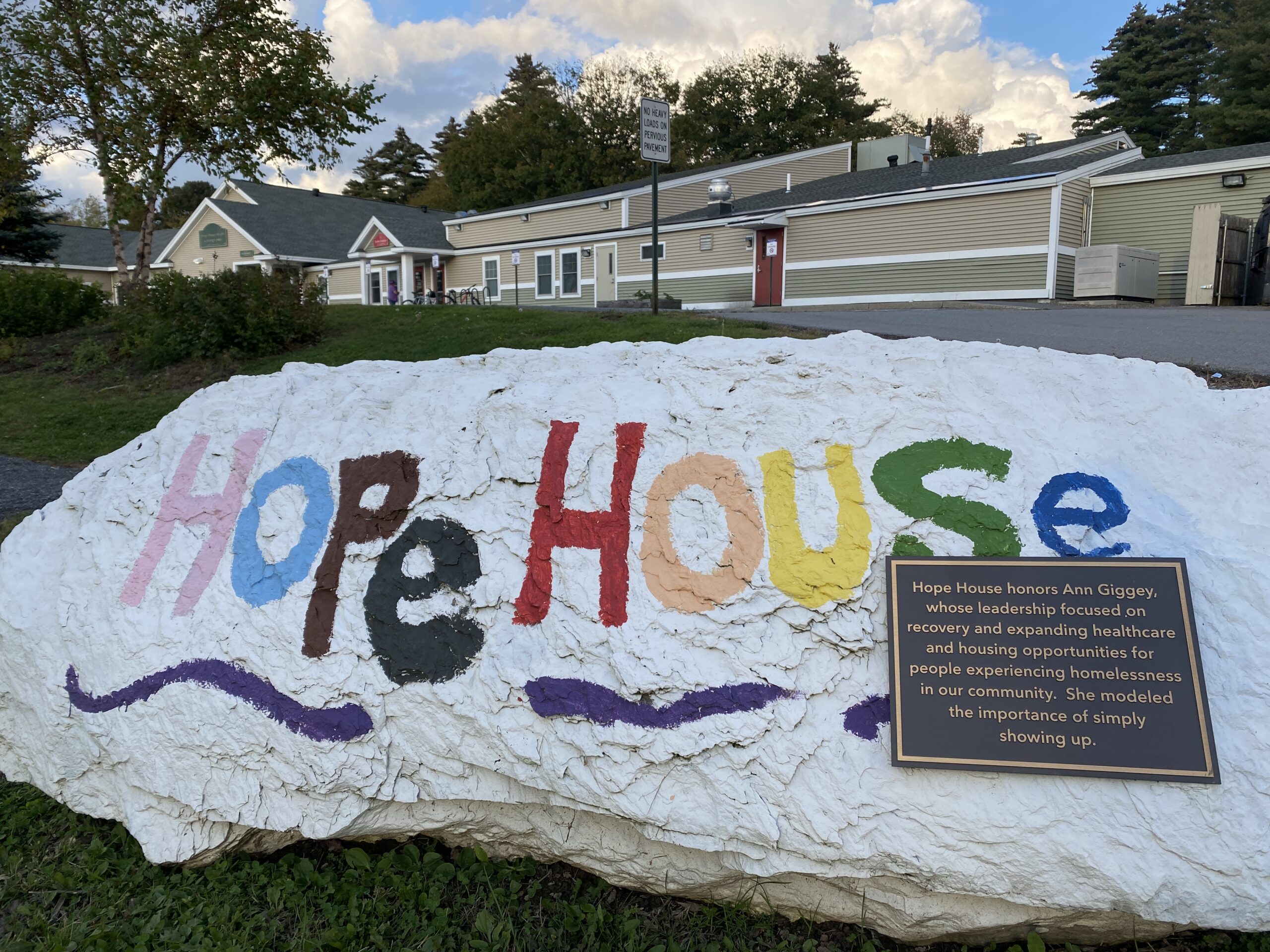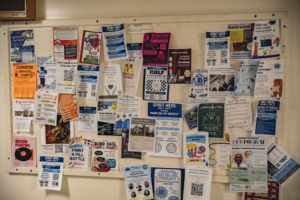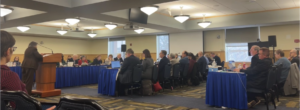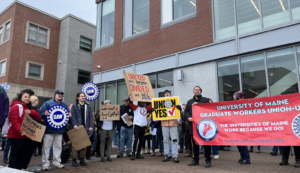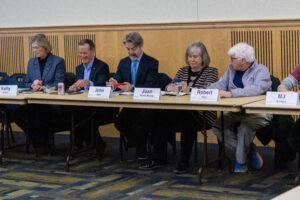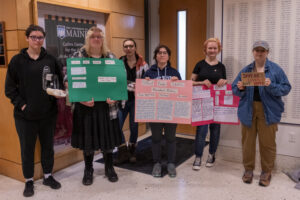After a long day, you probably want to go home, whether in a dorm, apartment or house, and unwind in your peace and comfort. After all, you are just a human being, and Maine winters are cold and exhausting both physically and emotionally. But the local people who have no homes are also human beings — and they get no rest, no relaxation, no shelter from the cold and thanks to recent decisions by the City of Bangor, certainly no peace.
A recent encampment sweep by city officials has left unhoused people displaced and distrusting of the city they live in. The first thing to remember is that these people have families, friends, lives, passions, and dreams—they are no less deserving or less human than those of us lucky enough to have reliable living situations. The second thing to remember is that ousting them from their already inhumane occupancies is incredibly unfair and cruel.
It is no secret that Maine has a housing crisis. This is due to multiple factors — loss of jobs after the pandemic, a tumultuous economy, unfairly high rent and many more. But the real crisis isn’t the unhoused people – it is the disrespectful treatment, stigmatization and injustice these individuals face.
Recently, I was fortunate enough to attend and cover a protest at the Bangor City Council advocating for the rights of unhoused people. Dozens of activists and community members were there, wearing bright green Xs like the Bangor officials plastered across the encampments of unhoused people. They carried signs stating that “visible poverty is not a crime” and “stop the sweeps.”
Hearing from people who have faced or continue to face homelessness was sobering.
After I left work the day of that meeting, I drove home in my warm car, went to my cozy apartment and made myself a meal with food that I bought with money earned from my jobs. This is not the reality that everyone faces, not even college students.
Brenna Jones is a University of Maine student whom I got the opportunity to speak with both at that meeting and at the Wilson Center’s Dinner and Dialogue on helping unhoused people last semester. During the latter interview, she mentioned her own experience with homelessness, which caused her to think beyond the stigma we apply to those in visible poverty.
Jones stated that living as an unhoused person is something of an “invisible identity” to others. As someone who lived in her car, she didn’t realize that even counted as being unhoused. The living situations of unhoused people can look as casual as couchsurfing or as blatant as living in tents and a multitude of situations in between.
How the question of whether or not to sweep an encampment is even controversial is staggering. Despite claims by officials that the sweep was only of a few people who had refused city services, its damage went much further than that, displacing large amounts of people and ousting them out of residences that are already inhumane and precarious.
People often claim that encampments are “eyesores,” implying that seeing people in visible poverty is somehow offensive — not because they are forced to live in those conditions, but because those with more privilege and opportunity decide they don’t want to see – and therefore acknowledge — that humans in their communities are living without homes.
Shelters are also not always an option. The Bangor Area Homeless Shelter has 38 year-round beds and will open overflow areas in winter, per their website. There are over 100 unhoused people living in Bangor. Those who have substance use disorder are not permitted to stay at the shelter as all occupants must be sober. Without effective harm reduction strategies for people with addiction and a lack of shelter, these people are genuinely being set up for failure.
Awareness is the first step in helping unhoused people. We can all help to stop stigma — visible poverty is not a crime, an eyesore or an offense. It is part of a community that is shameful only because we let others live in those conditions without adequate support. Unhoused people are people first—human beings with flesh and blood and dreams and personalities. They are just as deserving of basic human rights as those of us who are fortunate enough to have reliable jobs or wealthy families willing to support them.
To get involved, volunteer at a warming shelter this winter and/or donate extra resources to mutual aid programs. Even something as simple as donating a coat to a coat drive will help someone to get through the winter.
